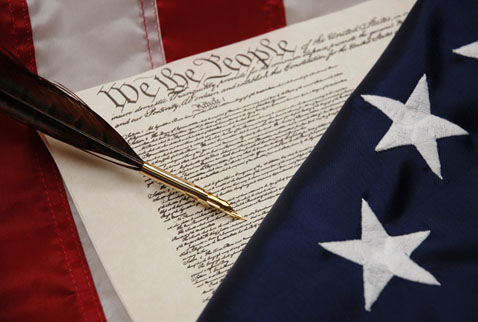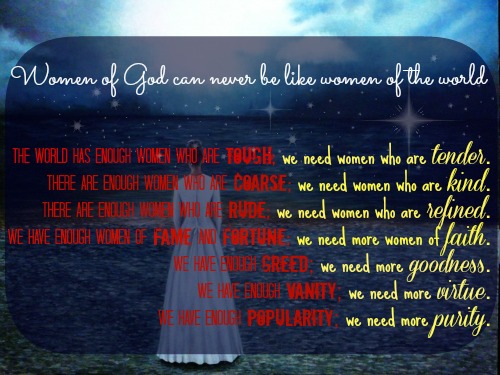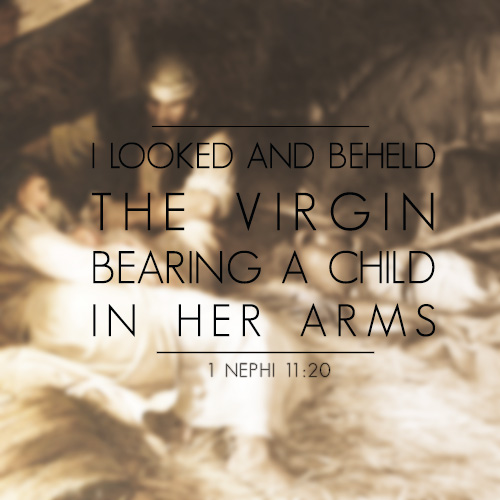During the 2012 U.S. presidential election much was written in the press about Mormons and government, but these press releases barely touched the surface of this subject. Of all religions in the world, The Church of Jesus Christ of Latter-day Saints, often inadvertently called the “Mormon Church,” has perhaps the most to say about good government.

The Book of Mormon and Government
The Book of Mormon, like the Holy Bible, is a record containing the writings of many prophets. These collected writings encompass the religious and secular doings of peoples who lived during 1,000 years in the Americas, most of them descendents of Jacob, whom the Lord called Israel. They were covenant people led out of Jerusalem before the Babylonian captivity, so that the Lord could raise up to Himself a protected branch in a far part of His vineyard. Although they kept the Law of Moses, their prophets ever prophesied of the Messiah to come, and this by name—Jesus Christ. They taught that salvation only could come through Christ. Christ Himself visited the Book of Mormon peoples after His resurrection, making the Book of Mormon a second witness of Him, and a support to the biblical account.
There is a great deal in the Book of Mormon about the wars and contentions among the people. There is also much regarding how they governed themselves during certain periods. There were periods when organized crime destroyed whole societies, and the accounts of these situations yield important warnings for our day. There were periods when the people enjoyed real freedom, and periods when there were dictators and absolute monarchies. There are accounts of assassinations and coups, righteous and unrighteous wars, intrigue, and genocide. In fact, the Book of Mormon is the record of a fallen people. God guided Mormon, a warrior-prophet who lived around 400 A.D., in abridging ancient scriptures to deliver to us in modern times what would best help us navigate the tumult and confusion of the Last Days. Mormons would probably universally agree that in these modern, unstable times, reading the Book of Mormon can be like reading today’s newspaper.
Through this lens we can see the importance of freedom, and the selection of good leaders. By good, we mean not only capable, but moral. One reoccurring theme is that the leader of all is the servant of all. Some Book of Mormon kings took nothing for their service and labored for their own support. Another theme is what happens when a fallen people create laws—the law becomes corrupt and upholds wickedness. Good people making good laws are important in the Book of Mormon.
American exceptionalism is also taught in the Book of Mormon. Its prophets made a point of teaching that God would allow no people to prosper in America, unless they would be righteous. If righteous, they would always be free, but if wicked, they would be subjected and eventually swept off.
A few quotes from the Book of Mormon regarding government:
- For it cometh to pass that whoso buildeth it up [secret combinations] seeketh to overthrow the freedom of all lands, nations, and countries; and it bringeth to pass the destruction of all people, for it is built up by the devil, who is the father of all lies; even that same liar who beguiled our first parents, yea, even that same liar who hath caused man to commit murder from the beginning; who hath hardened the hearts of men that they have murdered the prophets, and stoned them, and cast them out from the beginning.
Wherefore, I, Moroni, am commanded to write these things that evil may be done away, and that the time may come that Satan may have no power upon the hearts of the children of men, but that they may be persuaded to do good continually, that they may come unto the fountain of all righteousness and be saved (Ether 8:25, 26).
- For as their laws and their governments were established by the voice of the people, and they who chose evil were more numerous than they who chose good, therefore they were ripening for destruction, for the laws had become corrupted (Helaman 5:2).
- For behold, this is a land which is choice above all other lands; wherefore he that doth possess it shall serve God or shall be swept off; for it is the everlasting decree of God. And it is not until the fulness of iniquity among the children of the land, that they are swept off (Ether 2:10).
- Behold, this is a choice land, and whatsoever nation shall possess it shall be free from bondage, and from captivity, and from all other nations under heaven, if they will but serve the God of the land, who is Jesus Christ, who hath been manifested by the things which we have written (Ether 2:12).
Prophecy and Government (The Doctrine and Covenants and the U.S. Constitution)
The Doctrine and Covenants is a collection of modern revelations received by prophets in our day, mostly by the first prophet of The Church of Jesus Christ, Joseph Smith. Among these revelations are several which directly refer to American government.
- The Mormons, who had been ruthlessly set upon on numerous occasions by mobs, should seek redress from local, state, and federal governments. (This was attempted, but was usually fruitless.) (See
- The Founding Fathers were raised up by the Lord for the purpose of creating the Constitution of the United States, which the Lord calls an inspired document.
- If the people of America are righteous, they will always be free.
- Latter-day Saints should seek capable, righteous people to govern them.
- A New Jerusalem will be founded in America with its center point in Independence, Missouri. It will follow the governing philosophies of the Constitution of the United States.
Some quotes from the Doctrine and Covenants:
- We believe that all men are bound to sustain and uphold the respective governments in which they reside, while protected in their inherent and inalienable rights by the laws of such governments; and that sedition and rebellion are unbecoming every citizen thus protected, and should be punished accordingly; and that all governments have a right to enact such laws as in their own judgments are best calculated to secure the public interest; at the same time, however, holding sacred the freedom of conscience (D&C 134:5).
- We believe that men should appeal to the civil law for redress of all wrongs and grievances, where personal abuse is inflicted or the right of property or character infringed, where such laws exist as will protect the same; but we believe that all men are justified in defending themselves, their friends, and property, and the government, from the unlawful assaults and encroachments of all persons in times of exigency, where immediate appeal cannot be made to the laws, and relief afforded (D&C 134:11). (See the rest of Section 134, which deals with government.)
- Therefore, it is not right that any man should be in bondage one to another. And for this purpose have I established the Constitution of this land, by the hands of wise men whom I raised up unto this very purpose, and redeemed the land by the shedding of blood (D&C 101:79, 80).
The Articles of Faith
The thirteen Articles of Faith are a concise explanation of the basic doctrines of The Church of Jesus Christ. They were written by Prophet Joseph Smith in response to a request for an outline of Mormon belief from journalist William Wentworth. The Articles of Faith were canonized by the Church and can be found in The Pearl of Great Price, a book of Mormon scripture. The 12th Article of Faith explains that Mormons strive to be good citizens wherever they reside. It says,. . .
We believe in being subject to kings, presidents, rulers, and magistrates, in obeying, honoring, and sustaining the law.
There is an understood caveat. Tyranny and oppression need not be upheld. Although a soldier cannot be guilty of murder if he kills during war, the Doctrine and Covenants and Book of Mormon only uphold defensive wars as moral—in defense of family, property, and freedom—and only after a great deal of provocation and forgiveness rebuffed. (See Joseph Smith’s prophecy on war, Section 87 of the Doctrine and Covenants.)
This Article of Faith also means that Mormons will not do missionary work where they are not invited or recognized. Most countries are anxious for Mormons to establish themselves within their borders because of their good citizenship and charitable outreach.
Temporal and Spiritual are combined in God’s True Church
A starving man is in no condition to hear and embrace the gospel of Jesus Christ, and part of Christ’s commandment to His children is to serve one another. The two great commandments, to love God and to love one’s neighbor, mean that we are bound to help one another in times of need. The Church of Jesus Christ has always been involved with both the spiritual and temporal welfare of its own members and neighbors no matter what their faith. The Church of Jesus Christ works with governments and all sorts of charity organizations worldwide to bring disaster relief and welfare assistance wherever it is needed.
What All This Means on the Ground and in Everyday Life
Having just concluded a year and half’s service for The Church of Jesus Christ in Southeast Asia, I have witnessed some of these principles in action. In respect for one country’s desire NOT to have its Moslem population proselytized, the Church will not teach the gospel of Jesus Christ to Moslem citizens or allow them on church property to attend Christian meetings. The Church of Jesus Christ has performed numerous acts of charity for this same population, providing access to clean water, providing wheelchairs and training for needy citizens, and other worthy and well-received projects.





